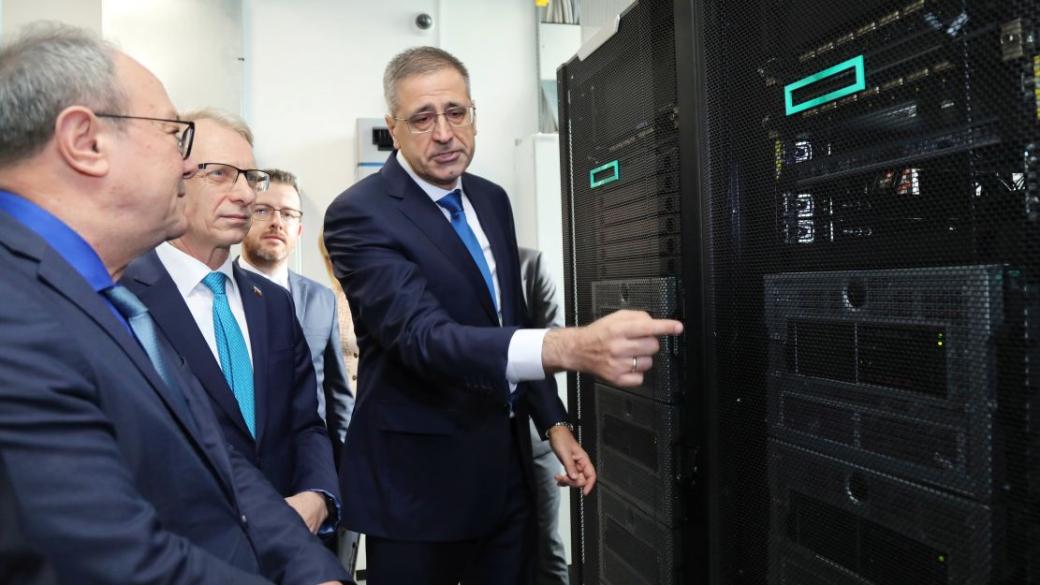Hemus — Bulgaria's new supercomputer — is operational
The country is one of the few in the world with more than one such machine in operation — its impact on the economy is not yet entirely clear

© ECONOMIC.BG / Council of Ministers
A new supercomputer has started working in Bulgaria. It is called Hemus and is part of the BAS complex for digital transformation and high-performance computing. Its official opening was today, and hopes for its potential impact on science and the economy — as with earlier similar innovations — are high.
The plan is for the new Bulgarian supercomputer to be used for cutting-edge research in areas such as artificial intelligence, climatology, bioinformatics, pharmaceuticals, high-tech materials development, dynamic process modelling and data analysis.
The commissioning of Hemus comes exactly two years after the debut of Discoverer, the high-performance machine located at Sofia Tech Park, which is one of eight supercomputers in the European Union's EuroHPC JU network.
Hemus will support the work of hundreds of Bulgarian scientists to be competitive with their colleagues from abroad in the use of such large-scale high-performance equipment as the supercomputer and data storage,” said today the President of the Bulgarian Academy of Sciences Prof. Julian Revalski. This is the first time that he has spoken at the conference.
Hemus has nearly 100,000 cores and a throughput of more than 3 petaflops. By comparison, Discoverer boasts 4.5 petaflops, ranking 134th in the world's TOP 500 fastest supercomputers. The one at BAS has yet to make the list, which is updated twice a year. The fall rankings are due out in November.
It should be recalled that Bulgaria's first supercomputer was IBM's Blue Gene, which was installed in 2008 and decommissioned in 2015. It was followed by the second one, Avitohol, based on HP technology and used for many years by the National Institute of Meteorology and Hydrology.
In practice, Bulgaria is one of the few countries in the world with more than one supercomputer in operation. History shows, however, that — at least so far — the hype around these high-performance computing machines is mostly big at the beginning, and then dies down.
However, in recent times, Bulgaria's ambitions to position itself more firmly on the high-tech and development scene have been backed by visible and promising ventures. The launch of the new supercomputers is also taking place against the backdrop of the opening in 2022 of the INSAIT institute for artificial intelligence and computer science, and about a year earlier of the GATE institute for big data, both at Sofia University.
As for Hemus, its construction is part of a larger complex worth more than €10 million, co-financed with European funds.

 Mirela Vavova
Mirela Vavova